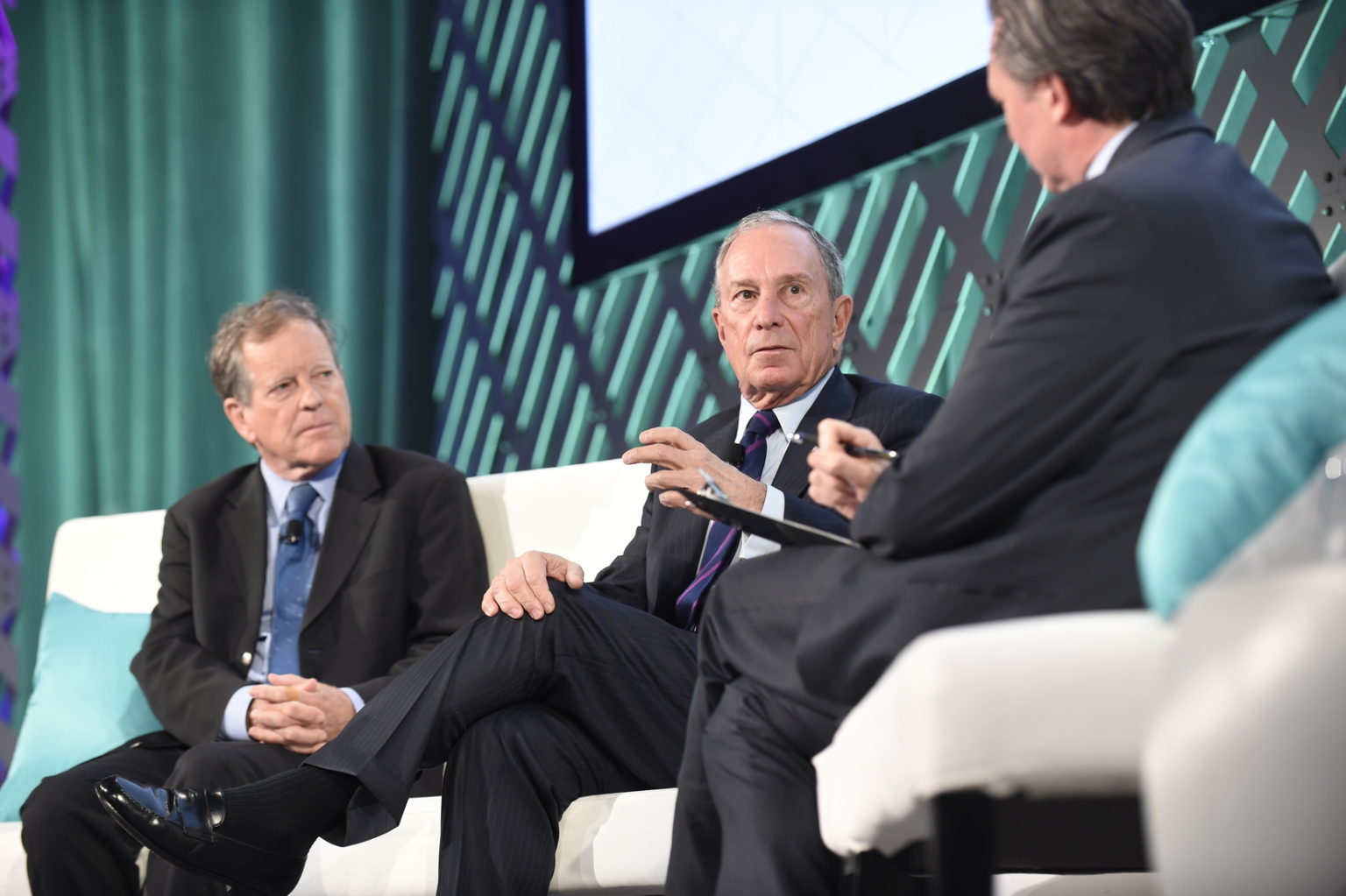At a Bloomberg New Energy Finance (BNEF) summit in New York City this week, former Mayor Michael Bloomberg was blunt about the prospects for so-called “clean coal.”
“Carbon capture is total bullshit,” he told the crowd of several hundred top energy industry executives and financiers. “This is a figment of imagination.”
“It’s just not possible,” Bloomberg added, describing the string of failures, setbacks, and allegations of cover-ups at Southern Company’s Kemper plant in Mississippi, which launched to great fanfare as a model for capturing carbon emissions from coal plants and pumping them into older oil wells with the goal of pushing more oil out of the ground. The Kemper plant, company officials admitted in February, is not economically viable as a coal-fired power plant.
Picking Fossil Fuel Favorites
But while Bloomberg, a billionaire recently ranked as the ninth-wealthiest man in the world, has long fought against the pollution from coal-fired electrical plants, personally pouring $80 million into the Sierra Club’s “Beyond Coal” campaign, he has also pushed for acceptance of another fossil fuel, natural gas. Scientists have warned natural gas could be even worse for the climate because of the country’s leaky pipeline infrastructure and the carbon emissions from burning natural gas, which though lower than coal, remain significant.
“If we’re going to win the war on coal, we need to have natural gas in our arsenal,” Bloomberg writes in his new book, Climate of Hope. “Using the best practices and done correctly, most of the negative effects of gas extraction can be dramatically minimized.”
That’s been a favorite position of politicians, like former President Obama, who say they support an “all of the above” approach to energy.
Limits of Natural Gas
However, as ThinkProgress’ Joe Romm pointed out last year, natural gas not only competes against coal, it also competes against renewable energy sources like wind and solar.
“That means even a very low leakage rate wipes out the climate benefit of fracking,” Romm wrote. “Indeed, researchers confirmed in 2014 that — even if methane leakage were zero percent — ’increased natural gas use for electricity will not substantially reduce U.S. GHG [greenhouse gas] emissions, and by delaying deployment of renewable energy technologies, may actually exacerbate the climate change problem in the long term.’”
The problem is, leakage rates have not been very low, they’ve been quite high, researchers warn. In a peer-reviewed paper published last year, Cornell professor Robert Howarth found that methane leaks from shale gas extraction were triple or quadruple the 3.2 percent leak rates that would make natural gas worse than coal for the climate.
Controlling those methane leaks requires federal or state regulation — and the prospects for federal regulation just got a lot more slim with the arrival of the Trump administration, which announced last month that it would no longer even ask gas companies to report exactly how much gas might be leaking from their equipment and properties.
Climate Regulations?
Asked at the BNEF The Future of Energy summit what the federal government can do to combat climate change, Bloomberg suggested that it could encourage people in the U.S. and abroad to be more fuel efficient but primarily he had one suggestion — and it wasn’t regulating emissions.
“Stay out of the way,” he said.
Bloomberg’s Climate of Hope co-author, Carl Pope, spoke alongside Bloomberg at The Future of Energy Summit. Pope, who ran the Sierra Club from 1992 to 2010 and was embroiled in a major scandal after Time revealed in 2012 that he had secretly accepted $26 million for the group from the natural gas drilling company Chesapeake Energy and its then-CEO Aubrey McClendon, rejected the notion that Bloomberg’s approach was too easy on the feds.
“We don’t let the federal government off the hook in the book,” said Pope.
Frack Freely
While the co-authors see little role for federal regulations, Bloomberg has also previously decried state efforts to police the natural gas industry.
“It’s a misguided policy,” Bloomberg told The Wall Street Journal after New York state governor Andrew Cuomo announced he would ban fracking for shale gas in the state. “To keep coal-fired power plants in upstate New York and not frack doesn’t make any sense at all.”
Three U.S. states have banned fracking as of April, when Maryland’s law was signed. But state environmental regulators have struggled to keep pace with the shale gas rush and the drilling industry’s cycles of boom and bust.
In Climate of Hope, Bloomberg continues his support for hydraulic fracturing, or fracking, for natural gas, arguing that it should only be off limits in a few, vulnerable places.
“Fracking, like any extraction technique, requires safeguards, and drilling shouldn’t be allowed everywhere, including sensitive areas like watersheds,” he writes. “But fracking allows for the most efficient extraction of natural gas, and as long as we need natural gas, it makes sense to frack.”
Bloomberg adds that “gas companies haven’t — and on their own won’t — uniformly adopt these best practices” to control methane leaks. However, other than saying that his foundation has funded an environmental group to “develop a regulatory framework” — one that hasn’t been implemented in the real world — to control emissions, the book is silent on what role state or federal regulators might have on controlling methane leaks or policing the drilling and fracking industry.
And that hands-off approach leaves an open question: Whether “clean burning natural gas,” as drilling companies like to call it, is like “clean coal” — a figment of the imagination.
Photo credit: Bloomberg
Subscribe to our newsletter
Stay up to date with DeSmog news and alerts






